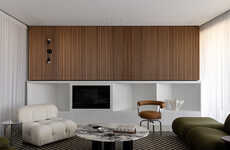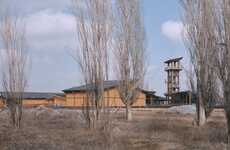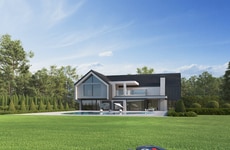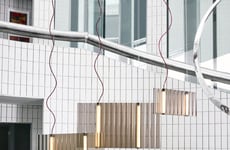
IED and CampusX Join Forces on the Pixel Project
Amy Duong — June 6, 2024 — Art & Design
The Instituto Europeo di Design in Floren heads the collaborative Pixel project with students in the Interior and Furniture Design program and design company CampusX. The students worked on reimagining student housing for the new Generation -- those born from the mid 90s to early 2010s. Dubbed the Pixel – An Urban Hub for the New Generation of Art and Artists, it imagines a co-living space in Milan that is defined by a modular grid arrangement that supports multiple functions.
The university shares, "Through these real-world projects, IED aims to offer its students the opportunity to engage with professionals boasting international work experience across all areas of design. More importantly, students will work on diverse projects with some of the industry's leading companies. Over three years, students will learn how project design skills, methods, and communication can work together to train expert interior designers with strong personalities, poised to play key roles within the product design industry."
Image Credit: IED
The university shares, "Through these real-world projects, IED aims to offer its students the opportunity to engage with professionals boasting international work experience across all areas of design. More importantly, students will work on diverse projects with some of the industry's leading companies. Over three years, students will learn how project design skills, methods, and communication can work together to train expert interior designers with strong personalities, poised to play key roles within the product design industry."
Image Credit: IED
Trend Themes
1. Modular Living Spaces - Creating adaptable and versatile living areas catered to the dynamic needs of young urban dwellers.
2. Co-living Communities - Redefining student housing with shared spaces that foster collaboration and creativity among residents.
3. Design-education Collaboration - Bridging academic and professional worlds to provide immersive learning experiences through industry partnerships.
Industry Implications
1. Interior Design - Revamping traditional interior design to incorporate modular elements and multifunctional layouts.
2. Real Estate Development - Innovating student housing projects to include communal living and shared resources in urban environments.
3. Education - Developing curriculum that integrates practical design projects with real-world industry collaboration.
4.1
Score
Popularity
Activity
Freshness






















